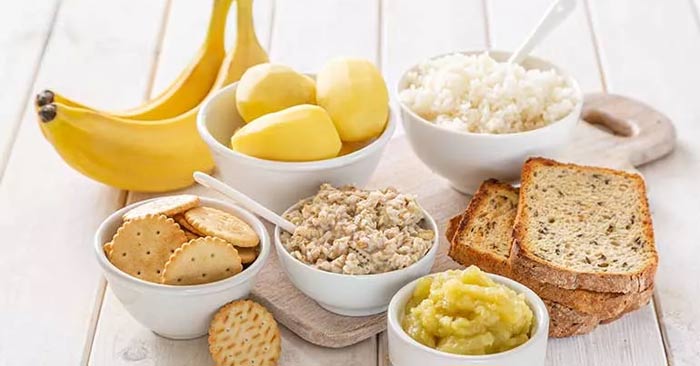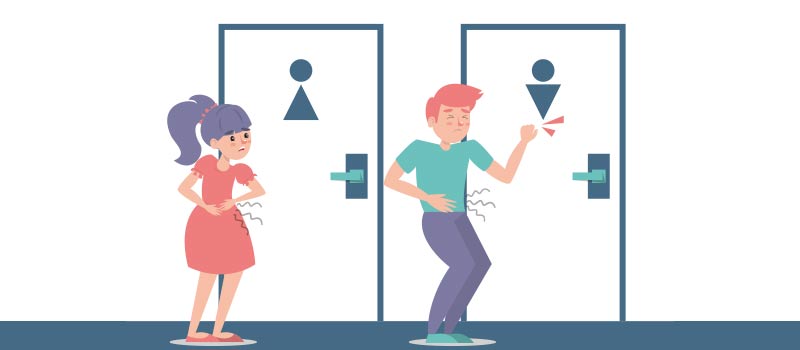What to eat when you have diarrhea?

Diet and diarrhea are closely linked. This is true whether your diarrhea is caused by allergies, food poisoning, or a chronic condition like irritable bowel syndrome. When you have diarrhea, certain foods can help get your digestive system back on track. Other foods can prolong or worsen your symptoms.
Eating bland foods can help diarrhea clear up faster and prevent stomach pain and irritation. Avoiding certain foods, such as milk or citrus fruits, may help prevent symptoms from getting worse.
Foods to eat when you have diarrhea
When you have diarrhea, the foods you eat and avoid can be crucial to a faster recovery. This is where the BRAT diet comes in handy.
The BRAT diet includes:
- Banana
- White rice (rice)
- Apple puree
- Toast made from white bread (toast)
These foods are bland and low in fiber, so they won't add any "heavy weight" to your digestive system. They're also sticky, which helps firm up your stool. You can incorporate these ingredients into your BRAT diet, such as spreading applesauce or banana on toast.
You can eat other foods as part of a bland diet. These foods may include:
- Cooked cereals, such as oats, Cream of Wheat or Farina
- Soda crackers
- Low sugar apple juice
- Baked or boiled potatoes
Drinking plenty of fluids can help you stay hydrated and replace lost fluids. Options to try include:
- Water or ice cubes
- Clear stock, such as chicken or beef broth, with the fat removed
- Electrolyte-enhanced water or coconut water that contains vitamins or electrolytes (try to avoid those with a lot of sugar)
- Solutions like Pedialyte
- Weak, decaffeinated tea
Once you start to recover, you can try adding foods like fried eggs and cooked vegetables.

Foods to avoid when you have diarrhea
Certain foods can irritate your digestive system and make diarrhea worse or last longer when you have or are recovering from diarrhea.
Foods to avoid when you have diarrhea include:
- Milk and dairy products (including milk protein drinks)
- Fried, fatty, greasy foods
- Spicy food
- Processed foods, especially those with additives
- Pork and veal
- Sardines
- Raw vegetables
- Onion
- Corn
- All citrus fruits
- Other fruits, such as pineapple, cherries, stone berries, figs, black currants and grapes
- Alcohol
- Coffee, soda, and other caffeinated or carbonated beverages
- Artificial sweeteners, including sorbitol
What to do when you have diarrhea
Many cases of diarrhea are short-lived and respond well to home treatments such as:
- Rest
- Change your diet
- Increase fluid intake
- Take over-the-counter medications, such as the antidiarrheal drug berberine
However, you can also have diarrhea due to a bacterial infection that can make your condition worse. If your diarrhea is severe, see your doctor for the best treatment options.
You should read it
- ★ Eating lots of cabbage is probably not as good as we usually think
- ★ 10 common diseases in children in the fall, symptoms and prevention
- ★ Top 10 most expensive but useless items in the world
- ★ Televzr app downloads and syncs Youtube videos from your computer via phone easily
- ★ How to use Photoshop CS5 - Part 6: Digital art